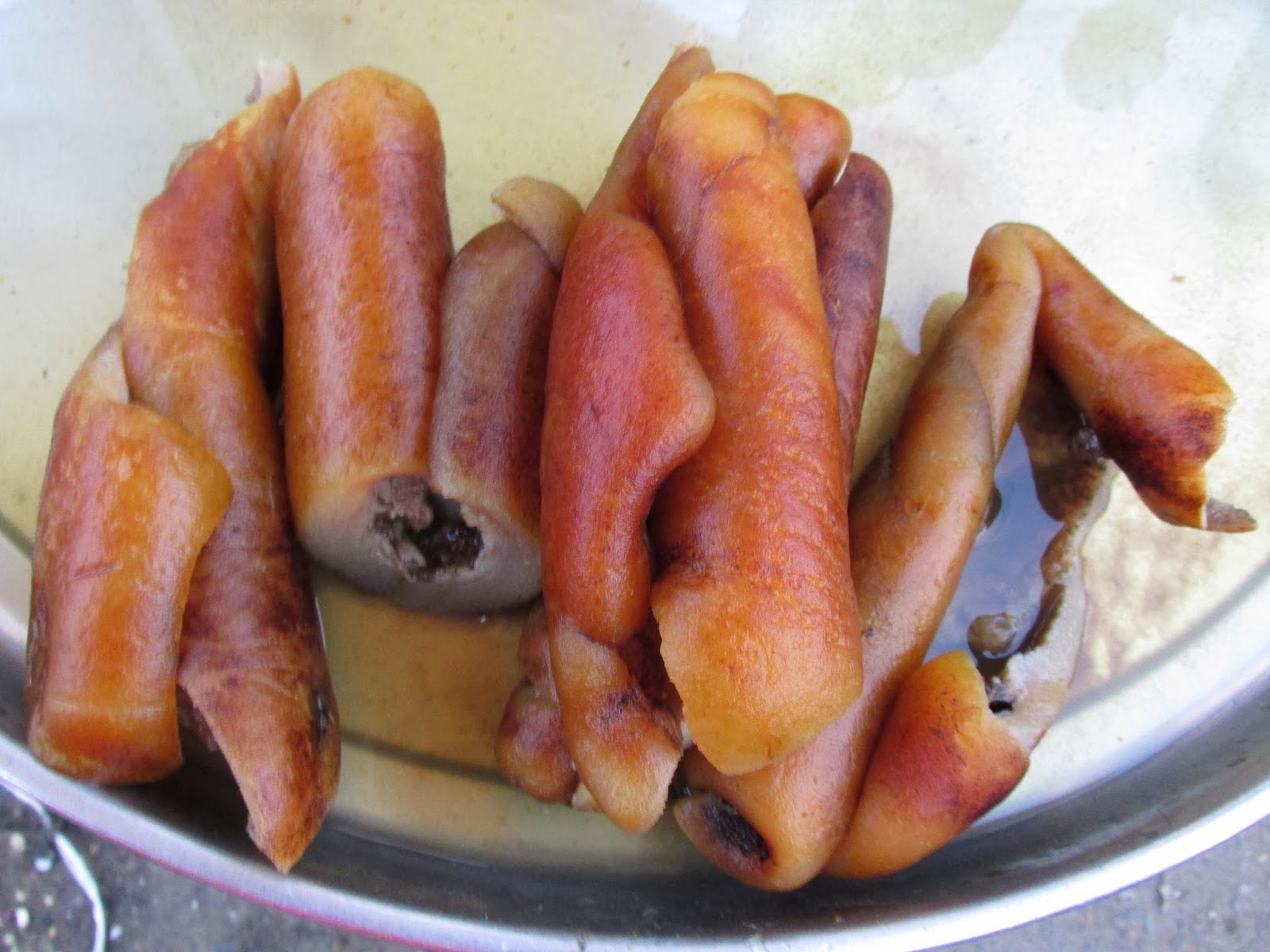The Nigeria government may have wrapped up plans to ban the sale and consumption of animal hides and skin popularly known as Kpomo, a delicacy in many parts of the country.
Minister of agriculture and rural development made the affirmation on Tuesday, September 9, 2014 when he called for laws that would check the sale and consumption of the product when he spoke at the 3rd joint anniversary of Animal Science Association of Nigeria (ASAN) and Nigeria Institute of Animal Science (NIAS) held at the University of Ibadan.
The minister who was represented at the event by Dr. Ademola Raji, the director, Animal Production and Husbandry in the ministry had this to say:
”I also commend NIAS for its advocacy and public enlightenment programs on Radio and Television that promote value addition in Livestock, as against sale and consumption of primary products alone, particularly with the issue of curtailing the widespread consumption of hides and skins as Kpomo which ought to be tanned into leather for a very high dollar return to the farmer and Tanneries.
“I expect that competent regulations acceptable by all stakeholders will be developed so as to give credibility that our set standards for food safety are being implemented which will boost value addition.”
The theme of the event which was “Value Addition in the Nigerian Livestock Industry: A strategy for Economic Growth and Stakeholders Empowerment” saw the minister buttress the point that the federal government would keep on driving the agricultural transformation agenda with increased enthusiasm, beseeching for support from cooperation from all stakeholder s to reach the goals.
He said,”I am confident that the satisfactory production levels achieved in the poultry and swine segments will soon stretch to reach other commodities such as beef, dairy, micro livestock and animal by products such as leather, bones, hides and skins.
“The drive to turn Agriculture into business and not merely a way of life is now in full gear, with the use of mobile phones and e- wallet for input distribution directly to farmers, farmer’s registration with biometric identity cards and the Growth Enhancement Support scheme.
“We have all seen the revolution in Rice production and processing; in cassava, sorghum and cotton that have increased output per hectare, through the supply of high quality raw materials to revive industries that have hitherto closed down.”
According to the minister, food production in the country rose by 8 million metric tonnes in 2013 as against that of 2012, representing over 70% growth of the target set for 2015.







